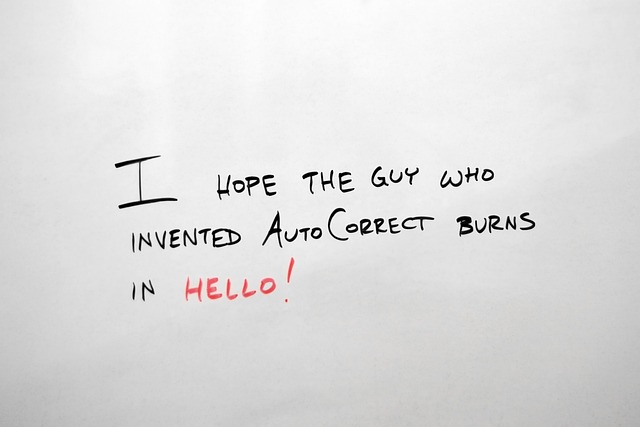Category: Common Mistakes in Oregon Criminal Defense Cases
Common Mistakes in Oregon Criminal Defense Cases: Navigating the Complexities
Introduction
In the intricate world of criminal defense, where every decision can have profound consequences, understanding common pitfalls is essential for legal professionals and enthusiasts alike. Oregon, with its unique legal landscape, is no exception to this rule. This comprehensive article aims to dissect and explore the various ‘Common Mistakes in Oregon Criminal Defense Cases’, shedding light on their impact, causes, and potential solutions. By delving into this subject, we hope to empower lawyers, students, and individuals interested in criminal justice to make more informed choices.
Understanding Common Mistakes in Oregon Criminal Defense Cases
Definition: Common mistakes in Oregon criminal defense refer to recurring errors or oversights made by legal professionals during the representation of clients accused of crimes. These mistakes can range from procedural lapses to strategic blunders, often with significant consequences for the defendant’s outcome.
Core Components:
-
Failure to Understand Local Laws and Rules: Oregon has specific criminal defense laws and court rules that differ from other states. Lawyers unfamiliar with these regulations may miss critical deadlines, misapply legal principles, or fail to raise relevant defenses.
-
Insufficient Investigation: An incomplete investigation can lead to a weak case strategy. This includes overlooking potential alibis, missing exculpatory evidence, or not scrutinizing the prosecution’s evidence thoroughly enough.
-
Ineffective Communication with Clients: Clear and consistent communication is vital. Mistakes occur when lawyers fail to explain complex legal concepts, do not keep clients informed, or neglect to obtain necessary information from them.
-
Neglecting to Challenge Evidence: Inadequate cross-examination of witnesses and failure to challenge the admissibility of evidence can weaken the defense case. This includes overlooking potential issues with forensic evidence, witness credibility, or procedural irregularities.
Historical Context: Over the years, Oregon’s criminal justice system has evolved, reflecting broader national trends and reforms. The state has implemented measures to ensure fairness and accuracy in criminal cases, leading to a more nuanced understanding of defense strategies. However, despite these advancements, certain mistakes persist due to the dynamic nature of legal practice and the inherent complexities of individual cases.
Global Impact and Trends
The impact of common mistakes in Oregon criminal defense does not stop at state boundaries. Here’s how it resonates globally:
-
International Legal Standards: Oregon’s adherence to international human rights standards, such as those outlined in the UN Declaration of Human Rights, influences its criminal justice practices. Mistakes that undermine these principles can have repercussions on a global scale.
-
Regional Variations: Different US states may face unique challenges due to variations in legal systems and societal norms. However, Oregon’s mistakes can offer insights into broader regional trends and potential areas for improvement across the nation.
-
Global Best Practices: Learning from successful defense strategies worldwide can help Oregon lawyers enhance their practices. Sharing knowledge and adopting effective methods can mitigate common errors and improve overall case outcomes.
Economic Considerations
The economic aspect of criminal defense is multifaceted:
| Factor | Impact |
|---|---|
| Legal Fees | High legal costs can deter individuals from seeking adequate defense, potentially leading to more mistakes due to limited resources. Oregon has measures in place to provide public defenders, but the demand often exceeds capacity. |
| Market Dynamics | The private criminal defense market in Oregon is competitive, with varying fee structures. Lawyers must balance their financial needs with the best interests of their clients, sometimes leading to ethical dilemmas. |
| Investment and Risk | Criminal defense involves significant time investment, and the outcome is often unpredictable. Lawyers may face economic risks, especially when taking on complex cases or representing indigent clients. |
Technological Advancements
Technology plays a pivotal role in modern criminal defense:
-
Digital Evidence Analysis: Advanced forensic tools enable more accurate analysis of digital evidence, enhancing investigations but also demanding updated legal knowledge to interpret results effectively.
-
Legal Research Platforms: Online legal research databases streamline case law access, saving time but requiring users to navigate complex interfaces and interpret results critically.
-
Communication Tools: Video conferencing for remote client meetings and secure document sharing improve accessibility and efficiency but introduce new security considerations.
Policy and Regulation
Oregon’s criminal defense landscape is shaped by various policies and regulations:
-
Oregon Criminal Defense Code: This comprehensive code outlines the rights of accused individuals, including the right to counsel, due process, and fair trial procedures. Lawyers must be adept at navigating these provisions.
-
Court Rules: The Oregon Rules of Civil Procedure and Criminal Procedure provide detailed guidelines for court operations, evidence admissibility, and discovery processes. Compliance with these rules is crucial for successful defense strategies.
-
Public Defender System: Oregon’s public defender system aims to provide legal representation to indigent defendants. Policies governing this system impact access to quality defense counsel.
-
Sentencing Guidelines: The state has adopted sentencing guidelines to ensure consistency and fairness in criminal sentences. Lawyers must consider these guidelines when building their case strategies.
Challenges and Criticisms
Main Challenges:
-
Resource Limitations: Insufficient funding for public defenders and limited legal aid resources can hinder the ability to provide thorough defense, leading to higher error rates.
-
Complex Legal Landscape: Oregon’s criminal laws and procedural rules are intricate, requiring continuous professional development for lawyers to stay current.
-
Communication Gaps: Effective communication between lawyers and clients is essential but often faces barriers due to language differences, cultural disparities, or mental health issues affecting clients.
Proposed Solutions:
- Enhance legal education programs to include specialized training in Oregon criminal defense practices.
- Increase funding for public defender offices and legal aid organizations to improve resource availability.
- Implement technology-aided communication tools to bridge the gap between lawyers and culturally diverse or linguistically challenged clients.
- Foster collaboration among legal professionals to share knowledge and best practices, ensuring continuous learning and adaptation to changing legal landscapes.
Case Studies
Case Study 1: The Impact of Inadequate Investigation
A young lawyer took on a case representing a client accused of armed robbery. Despite the client’s claims of alibi, the lawyer failed to conduct a thorough investigation, missing critical evidence that could have exculpated him. This oversight led to an unsuccessful defense and a lengthy prison sentence. Post-trial analysis revealed that proper investigation would have uncovered a different narrative, underscoring the importance of comprehensive fact-finding.
Case Study 2: Strategic Missteps in a Sex Crime Case
In a highly publicized sexual assault case, a seasoned public defender made the decision to plead guilty on behalf of her client, believing she could negotiate a more lenient sentence during the sentencing phase. However, the prosecution’s evidence was strong, and the judge imposed a harsher-than-expected sentence. This case highlights the delicate balance between pleading guilty for a favorable plea deal and ensuring justice is served.
Future Prospects
The future of common mistakes in Oregon criminal defense cases looks promising with several emerging trends:
-
AI-Assisted Legal Services: Artificial intelligence can enhance case research, evidence analysis, and predictive analytics, potentially reducing human errors. However, ethical considerations and the need for human oversight remain crucial.
-
Remote Legal Services: The rise of remote technology enables lawyers to provide services from a distance, increasing accessibility but requiring robust cybersecurity measures to protect client privacy.
-
Specialized Defense Teams: Complex cases may benefit from multidisciplinary teams, including experts in forensics, psychology, and investigative journalism, ensuring a comprehensive approach to defense strategies.
Conclusion
Common mistakes in Oregon criminal defense cases are not mere anomalies but complex issues that demand attention and action. By understanding these mistakes, their causes, and potential solutions, legal professionals can navigate the challenges more effectively. This article has provided a comprehensive overview, highlighting the importance of continuous learning, adaptation, and access to resources. As the criminal justice system evolves, staying vigilant against these pitfalls will ensure fairness and accuracy in Oregon’s courts.
FAQ Section
Q: What are the most common reasons for mistakes in criminal defense cases?
A: Common causes include inadequate investigation, procedural errors, communication breakdowns, and a lack of understanding of local laws and rules.
Q: How can lawyers improve their communication with clients?
A: Effective communication involves clear explanations of legal concepts, active listening, and regular updates on case progress. Using technology to bridge cultural or language gaps can also enhance communication.
Q: Can technology really help in criminal defense cases?
A: Absolutely! Technology aids in evidence analysis, legal research, and secure client communication. However, it requires ethical use and proper training to avoid potential pitfalls.
Q: What role do economic factors play in Oregon criminal defense?
A: Economic considerations impact legal fees, market dynamics, and investment risks for lawyers. Access to resources, especially for indigent defendants, is a critical aspect of ensuring fair representation.
Avoiding Common Oregon Defense Mistakes & Laws

Oregon defense mistakes stem from inadequate communication, physical restraint issues, misinterpreta…….
Prevent Legal Defense Mistakes in Oregon: Guide to Strong Case Management
Mastering Oregon Defense: Pitfalls to Victory
Prevent Legal Defense Mistakes in Oregon Criminal Cases
Master Oregon Defense: Avoid Common Mistakes, Win Cases
Avoid Legal Defense Mistakes: Oregon’s Comprehensive Guide
Avoiding Defense Pitfalls: Key Mistakes in Oregon Cases

Oregon defense attorneys face challenges due to misunderstandings of evidentiary rules, which can le…….
Common Defense Mistakes to Avoid in Oregon Cases

In Oregon, defense case errors like misinterpreting laws, introducing inadmissible evidence, and ina…….
Avoiding Defense Case Errors in Oregon: Strategies & Lessons Learned

Navigating defense case errors in Oregon requires understanding unique legal codes and precedents. C…….













